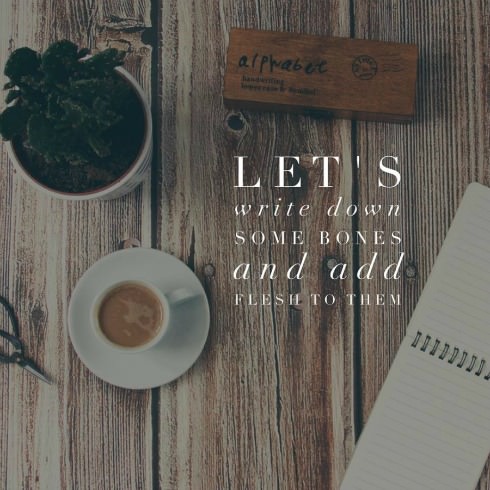 In our office, there is a quiet little desk in the corner that is home to piles of books, a coffee cup, and a bespectacled Jesuit called Andy Hamilton SJ. He has a wide circle of friends, many of whom share his passion for writing. When I first met him 12 years ago, I noted that when he frequented events and met with young people, he would open with the line ‘do you like writing?’, and if they answered yes, it would lead to genuine friendship wherein he would mentor and encourage them.
In our office, there is a quiet little desk in the corner that is home to piles of books, a coffee cup, and a bespectacled Jesuit called Andy Hamilton SJ. He has a wide circle of friends, many of whom share his passion for writing. When I first met him 12 years ago, I noted that when he frequented events and met with young people, he would open with the line ‘do you like writing?’, and if they answered yes, it would lead to genuine friendship wherein he would mentor and encourage them.
Writing is such a gift, and such an important spiritual practice and measure of progress and I have to thank Andy for helping me to improve mine.
I recently came across some old journals from my twenties. My journals always had to reflect something of my creativity, so I would decorate the covers with felt, photography, bits of material, postcards and prayers torn out of magazines.
The pages were filled with tales of love and loss, swearing and prose, pictures and fancy scrawl, and hurried reflections. Most of my journals post age 19 are addressed to God.
Writing is one of my great loves, and yet, often it requires real discipline. On a recent week off from my job, I made space to sit in a café and just write continuously on my iPad until hitting 1,000 words. This was only possibly because I had a purpose and a goal. I can’t just write for the sake of it.
Natalie Goldberg wrote an extraordinary book in the 1986 called ‘Writing down the bones: Freeing the writer within’ which I listened to as an audiobook recently. An excerpt is below:
‘First, consider the pen you write with. It should be a fast-writing pen because your thoughts are always much faster than your hand. You don't want to slow up your hand even more with a slow pen. A ballpoint pen, a pencil, a felt tip, for sure, are slow. Go to a stationery store and see what feels good to you. Try out different kinds. Don't get too fancy and expensive. I mostly use a cheap Sheaffer fountain pen, about $1.95. It has replaceable cartridges. I've bought hundreds over the years. I've had every colour; they often leak, but they are fast. The new roller pens that are out now are fast, too but there's a slight loss of control. You want to be able to feel the connection and texture of the pen on paper.’
This brilliant tome has been the fodder of writing teachers ever since. It has been updated and renewed.
I realised recently that writing, photography and music are my best ways of praying, but I have to be careful not to project my own issues and thoughts onto God.
Frequently on retreat I carry a camera or my iPhone with a detachable wide-angle lens or, if my director lets me, my keyboard. I always have a journal.
I was discussing with a friend the different ways we can do the Ignatian Examen as we pondered Mark Thibodeaux’s recent book ‘Reimagining the Ignatian Examen’ (which is amazing: you should read it and download the app version. Do it now).
I mentioned to my friend that I wanted to try a written Examen. I had this idea of handlettering the words into calligraphy-like scrawls. My friend, who is a religious sister, says that she struggles with the Examen unless she writes it down. She writes down her thoughts, her life, her journey, her music, her art, her sport, her theatre and her prayer.
So, by way of prayer, let’s write down some bones and maybe, if all goes well, me might put flesh on those bones.
Beth Doherty is editor of PrayOnline.